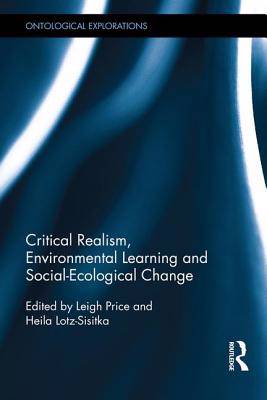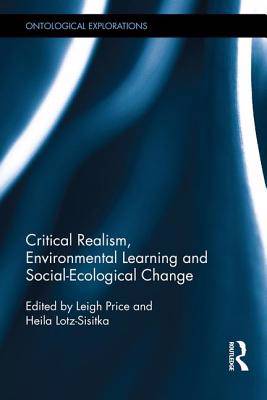
- Retrait gratuit dans votre magasin Club
- 7.000.000 titres dans notre catalogue
- Payer en toute sécurité
- Toujours un magasin près de chez vous
- Retrait gratuit dans votre magasin Club
- 7.000.000 titres dans notre catalogue
- Payer en toute sécurité
- Toujours un magasin près de chez vous
Critical Realism, Environmental Learning and Social-Ecological Change
Description
Southern Africa, where most of these book chapters originate, has been identified as one of regions of the world most at risk of the consequences of environmental degradation and climate change. At the same time, it is still seeking ways to overcome the century long ravages of colonial and apartheid impositions of structural and epistemic violence. Research deliberations and applied research case studies in environmental education and activism from this region provide an emerging contextualized engagement that is related to a wider internationally articulated quest to achieve social-ecological justice, resilience and sustainability through educational interventions.
This book introduces a decade of mainly southern African critical realist environmental education research and thinking that asks the question: "How can we facilitate learning processes that will lead to the flourishing of the Earth's people and ecosystems in more socially just ways?" The environmental education research topics represented in this book are wide-ranging. However, they all exhibit the common theme of social justice and wanting to create change towards a better future. All the authors have used critical realist or critical realist-influenced research methodologies. Offering contributions from a small but growing community of researchers working with critical realism in the global South, this book will be of interest to students, scholars and practitioners in the areas of environmental education, sustainability, development and the philosophy of critical realism in general.
Spécifications
Parties prenantes
- Editeur:
Contenu
- Nombre de pages :
- 384
- Langue:
- Anglais
- Collection :
Caractéristiques
- EAN:
- 9781138025196
- Date de parution :
- 26-11-15
- Format:
- Livre relié
- Format numérique:
- Genaaid
- Dimensions :
- 157 mm x 234 mm
- Poids :
- 680 g






